
MARINE BIOLOGY
Scope & Guideline
Leading the Charge in Marine Research Excellence
Introduction
Aims and Scopes
- Ecological Interactions and Community Dynamics:
Research focused on the interactions between various marine species and their ecosystems, including predator-prey relationships, competition, and symbiosis. - Physiology and Adaptation:
Studies examining the physiological responses of marine organisms to environmental changes, including temperature fluctuations, salinity variations, and ocean acidification. - Conservation and Management:
Papers addressing marine conservation issues, management strategies for sustainable fisheries, and the impacts of human activities on marine ecosystems. - Biodiversity and Biogeography:
Research exploring the diversity of marine life across different habitats and the biogeographic patterns of species distribution. - Genetics and Evolution:
Investigations into the genetic diversity, population structure, and evolutionary processes of marine organisms. - Technological Innovations in Marine Research:
Application of cutting-edge technologies, such as eDNA metabarcoding and remote sensing, to enhance marine biology research.
Trending and Emerging
- Climate Change Impacts:
An increasing number of studies are focusing on the effects of climate change on marine ecosystems, particularly in relation to species distribution, reproductive success, and ecosystem resilience. - Marine Conservation Strategies:
Research aiming at developing and evaluating effective marine conservation strategies is on the rise, with a focus on protected areas, habitat restoration, and sustainable fisheries management. - Behavioral Ecology:
There is a growing interest in understanding the behavioral responses of marine species to environmental stressors, including predation risk and resource availability. - Technological Integration:
The use of advanced technologies such as genetic sequencing, remote sensing, and ecological modeling is becoming increasingly prevalent in marine biology research, facilitating new insights into marine ecosystems. - Anthropogenic Effects on Marine Life:
Studies exploring the impacts of human activities, such as pollution and habitat degradation, on marine organisms and ecosystems are gaining prominence as awareness of environmental issues increases.
Declining or Waning
- Traditional Taxonomy:
There has been a noticeable decrease in studies solely focused on the taxonomy of marine species, potentially overshadowed by integrative approaches that combine genetic and ecological data. - Invasive Species Studies:
Research specifically addressing the impacts of invasive species has become less frequent, as the focus shifts towards broader ecosystem interactions and management strategies. - Historical Ecology:
Papers dedicated to historical ecological assessments of marine environments are emerging less frequently, possibly due to a growing emphasis on contemporary ecological changes and their immediate impacts. - Microbial Ecology:
While still relevant, the focus on microbial ecology in marine systems has seen a relative decline compared to more prominent topics such as climate change effects on macrofauna.
Similar Journals
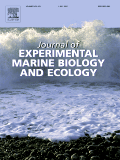
JOURNAL OF EXPERIMENTAL MARINE BIOLOGY AND ECOLOGY
Advancing Knowledge in Marine Biology and EcologyJOURNAL OF EXPERIMENTAL MARINE BIOLOGY AND ECOLOGY, published by Elsevier, serves as a premier outlet for researchers dedicated to the exploration and understanding of marine organisms and their ecosystems. Established in 1967 and running until 2024, this prestigious journal holds an impact factor reflecting its significance within the scientific community, particularly in the fields of Aquatic Science and Ecology, Evolution, Behavior and Systematics, where it ranks in the Q2 quartile. With a focus on original research and critical reviews, it aims to advance knowledge in marine biology and ecology, fostering a deeper understanding of marine environments that are crucial to biodiversity and ecosystem health. The journal is indexed in Scopus, with impressive rankings highlighted by a 73rd percentile in Ecology and a 68th percentile in Aquatic Science, making it an essential resource for researchers, professionals, and students alike wanting to contribute to and stay informed about advancements in marine ecological research.
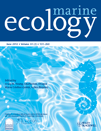
Marine Ecology-An Evolutionary Perspective
Unraveling the Mysteries of Marine BiodiversityMarine Ecology-An Evolutionary Perspective, published by WILEY, is a renowned journal dedicated to advancing the understanding of marine ecosystems through the lens of evolutionary biology. Established in 1980, the journal has firmly positioned itself as a vital resource in the field, currently boasting a 2023 Scopus rank of #337 in Ecology, Evolution, Behavior and Systematics and a Q2 category ranking in Ecology. With a focus on original research and reviews that encompass a broad spectrum of marine ecological studies, this journal critically examines the mechanisms driving marine biodiversity and ecosystem dynamics. Researchers, professionals, and students alike benefit from the journal’s comprehensive insights and robust analyses, which are pivotal for fostering ecological knowledge and informing conservation efforts. Although currently not an Open Access publication, the journal remains accessible through various academic platforms, inviting the scientific community to engage with its vital contributions to aquatic science and the evolutionary processes shaping our oceans. With an impressive trajectory that extends until 2024, Marine Ecology-An Evolutionary Perspective continues to set benchmarks in marine research.
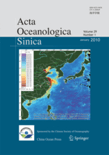
ACTA OCEANOLOGICA SINICA
Navigating the Frontiers of Ocean ResearchACTA OCEANOLOGICA SINICA, published by SPRINGER, stands as a significant voice in the fields of Aquatic Science and Oceanography, contributing vital research and insights since its inception in 1985. With an ISSN of 0253-505X and an E-ISSN of 1869-1099, this journal maintains a strong international focus, delivering high-quality peer-reviewed articles that address pressing marine and freshwater environmental issues. Although it operates under a subscription model, its Q3 ranking in both Aquatic Science and Oceanography demonstrates its solid standing within Scopus, placing it in the 48th and 44th percentiles respectively. The journal aims to foster knowledge exchange and collaboration among researchers, professionals, and students by providing a platform for innovative studies and comprehensive reviews. With a dedicated editorial board and a commitment to advancing scientific understanding, ACTA OCEANOLOGICA SINICA serves as an essential resource for anyone engaged in the study of oceanographic phenomena and aquatic ecosystems.

Hidrobiologica
Unveiling the mysteries of aquatic life and ecosystems.Hidrobiologica is a pivotal academic journal dedicated to the field of aquatic sciences and ecology, published by UNIV AUTONOMA METROPOLITANA-IZTAPALAPA in Mexico. With a commitment to fostering research from diverse ecosystems, this journal encourages the dissemination of knowledge spanning aquatic environments, ecological interactions, and marine biodiversity. Although classified in the Q4 category across various relevant fields such as Aquatic Science and Oceanography, Hidrobiologica is focused on increasing visibility and engagement among scholars by providing a platform for innovative research that addresses contemporary ecological challenges. The journal's address reflects its deep-rooted commitment to local and regional aquatic research, yet it aims to resonate with a global audience. Researchers, professionals, and students alike will find value in the journal's scope, which spans from 2007 to 2024, making it a valuable resource for understanding advancements in aquatic studies. While not an open-access journal, it continues to be a significant contributor to the academic dialogue in aquatic sciences.
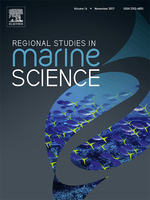
Regional Studies in Marine Science
Exploring the Depths of Marine EcosystemsRegional Studies in Marine Science, published by Elsevier, is a leading academic journal dedicated to advancing the understanding of marine ecosystems and their regional dynamics since its inception in 2015. With an ISSN of 2352-4855, this journal is indexed in Scopus and has achieved impressive ranking quartiles, notably Q2 in categories like Animal Science and Zoology, and Ecology, showcasing its relevance and impact in these fields. As of 2023, it ranks in the 79th percentile for Animal Science and Zoology, reflecting its significant contribution to academic discourse. While the journal operates under a traditional access model, its rigorous peer-review process ensures the publication of high-quality research that is crucial for understanding ecological interactions and fostering sustainable practices within marine environments. Researchers, professionals, and students alike will find this journal an invaluable resource for the latest findings and advancements in marine science, as it strives to bridge the gap between research and practical application at regional and global levels.

JOURNAL OF OCEANOGRAPHY
Unveiling the Secrets Beneath the WavesJOURNAL OF OCEANOGRAPHY, published by Springer, stands as a leading academic journal in the field, with an impressive Q1 ranking in Oceanography for 2023. Since its inception in 1992, this journal has dedicated itself to the dissemination of high-quality research that spans a diverse array of topics within oceanography and earth sciences. With an ISSN of 0916-8370 and an E-ISSN of 1573-868X, it plays a crucial role in bridging the gap between academia and practical marine applications. The journal is indexed in Scopus, ranking #57 out of 145 in its category, reflecting its rigorous academic standards and the impact of its published works, reaching a notable ile in the 61st percentile. Located in Japan, the JOURNAL OF OCEANOGRAPHY provides a vital platform for sharing significant research findings that contribute to our understanding of marine environments, aiming to foster interdisciplinary collaboration among researchers, professionals, and students dedicated to marine science.

THALASSAS
Pioneering Insights for Sustainable Aquatic ManagementTHALASSAS is a prominent academic journal specializing in the fields of Aquatic Science and Oceanography, published by Springer International Publishing AG. Established in 2005 and running through 2024, this journal serves as a vital platform for sharing groundbreaking research and innovative findings related to the marine environment and its ecosystems. With an ISSN of 0212-5919 and an E-ISSN of 2366-1674, THALASSAS is indexed in Scopus and currently holds a Q3 classification in both Aquatic Science and Oceanography for 2023, reflecting its relevance and contribution to these scientific disciplines. Although it does not follow an Open Access model, THALASSAS offers valuable insights for researchers, professionals, and students interested in sustainable ocean management and aquatic biodiversity. Its rigorous peer-review process ensures that published articles meet the highest standards of academic quality, fostering a deeper understanding of marine sciences and addressing critical issues facing aquatic systems today.

Journal of Ocean University of China
Unveiling the Mysteries of the Deep BlueThe Journal of Ocean University of China, ISSN 1672-5182, is a premier academic journal dedicated to advancing the fields of Ocean Engineering and Oceanography. Published by the esteemed Ocean University of China, the journal serves as a vital platform for researchers, professionals, and students to disseminate groundbreaking findings and foster collaboration in marine science and engineering. With a commitment to quality, the journal currently holds a Q3 ranking in both Ocean Engineering and Oceanography as of 2023, indicating its significant contributions within the scientific community. The journal's scope encompasses a wide range of topics including marine technology, ecological studies, and coastal management, all aimed at enhancing the understanding and utilization of oceanic resources. Although currently not Open Access, it continues to attract submissions from renowned scholars, ensuring a diverse and innovative range of research. By providing access to cutting-edge research and practical insights, the Journal of Ocean University of China plays a critical role in shaping the future of ocean sciences and engineering.
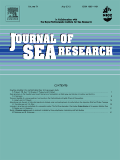
JOURNAL OF SEA RESEARCH
Exploring the Depths of Aquatic KnowledgeJOURNAL OF SEA RESEARCH, published by Elsevier, is a premier academic journal dedicated to advancing knowledge in the fields of aquatic science, ecology, and oceanography. Since its inception in 1996, this journal has provided a vital platform for researchers and professionals to disseminate groundbreaking findings and promote fostering interdisciplinary discussions. With its impressive Q2 ranking in multiple categories, including Aquatic Science and Ecology, Evolution, Behavior and Systematics, it positions itself as a significant contributor to marine and environmental studies. The journal is accessible in both print (ISSN: 1385-1101) and online formats (E-ISSN: 1873-1414), ensuring wide reach and engagement within the scholarly community. Researchers and students alike will find the journal not only a reliable source of information but also a source of inspiration for future explorations. With a commitment to quality and a broad scope that spans fundamental to applied research, JOURNAL OF SEA RESEARCH remains an indispensable resource for understanding the complexities of marine environments and their relevance to our changing world.

CAHIERS DE BIOLOGIE MARINE
Navigating the Depths of Marine KnowledgeCAHIERS DE BIOLOGIE MARINE, published in France, is a distinguished journal in the field of Aquatic Sciences, known for its interdisciplinary exploration of marine biological research. With ISSN 0007-9723 and E-ISSN 2262-3094, it has served as a vital platform for disseminating scientific knowledge since its inception in 1992. The journal is indexed in Scopus, where it currently holds a position of rank #172 out of 247 in the Aquatic Science category, landing in the 30th percentile, reflecting its commitment to quality research in the domain. Although it operates as a traditional access journal, CAHIERS DE BIOLOGIE MARINE encourages scholarly contribution from both emerging and established researchers, making significant strides in understanding marine ecosystems and biota. As such, it remains an essential resource for professionals and students aiming to contribute to the growing body of knowledge in aquatic sciences.